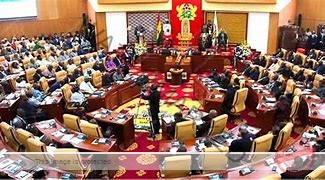It was intriguing reading reactions on social media during the recent youth protests in Kenya. The commentary seemed to suggest that Ghanaians swa
It was intriguing reading reactions on social media during the recent youth protests in Kenya.
The commentary seemed to suggest that Ghanaians swallow whatever bitter pill their governments serve them and do not “care” much when it comes to demanding accountability from public officials.
Mr Rodney Nkrumah Boateng, in response to this sentiment, wrote the following in an opinion piece on July 2,: “On various social media platforms, there seemed to Accountabe a lot of admiration among Ghanaians for the Kenyan youths who took to the streets, with many insisting that Ghanaians were too cowardly to engage in street protests against the economic situation in the country.
I found this claim rather surprising, if not ignorant, for the simple reason that even a cursory glance at this country’s political history would reveal quite the contrary.” The country has a history of protests in response, and it is quite a stretch to describe Ghanaians the way social media commentators did. This is why I share Mr Nkrumah Boateng’s objection to the narrative.
Do Ghanaians really want governments that are accountable? Of course! Let us look at how they have answered demand for accountability questions in the Afrobarometer survey.
Demand for accountability
In Round 5 (2012), when asked to state their agreement or disagreement with the following statement – “It is more important for citizens to be able to hold government accountable, even if that means it makes decisions more slowly” six out of 10 (60%) answered “agree/strongly agree.”
By Round 9, (2022), eight out of 10 (80%) answered “agree/strongly agree.” This represents a twenty-percentage point increase in demand for accountability over a 10-year period. In Round 4 (2008), when asked to state their agreement or disagreement with the following statement- “Parliament should ensure that the president explains it on a regular basis how [his] government spends taxpayers’ money”, seven out of 10 (68%) answered “agree/strongly agree.”
By Round 9 (2022), eight out 10 (83%) answered “agree/strongly agree.” This represents a fifteen-percentage point increase in demand for accountability over a fourteen-year period.
And finally, in Round 4 (2008), when asked to state their agreement or disagreement with the following statement – “The news media should constantly investigate and report on government mistakes and corruption” eight out of 10 Ghanaians (78%) answered “agree/strongly agree.” By Round 9 (2022) nine out of 10 (86%) answered “agree/strongly agree.”
This represents an eight-percentage point increase in demand for accountability over a fourteen-year period. Interestingly, the demand for accountability is not significantly shaped by our partisan attachments as other issues.
Across the three accountability checkpoints discussed (media, parliament, and a voice for citizens), both sets of partisans – NDC (86%) and NPP (82%) on average, support accountability.
It is clear from the above that it is unfair describing Ghanaians as a people who simply look away and give their governments a free pass. Ghanaians indeed do want governments that are accountable.
The challenge
In an ideal world, citizens should not even have to demand accountability from the governments they elect. In addition, our governance architecture has inbuilt accountability mechanisms to ensure that public officials do not act in ways that injure the citizens they serve.
The reality, however, is that the better angels in humans do not always prevail making it necessary for two things to happen – a) the accountability mechanisms must act so persons found to have caused infractions receive their due punishment; and/or b) citizens must act and demand accountability.
This is where the Ghanaian challenge, in my opinion, emerges. Our self-described civic habits do not match the sharp increase in our demand for accountability. How so? Sticking with the Afrobarometer survey, here are some answers.
Between Round 1(1999) and Round 9(2022), the percentage of Ghanaians who say they have joined others to raise issues at least once dropped from fifty-three per cent (53%) to thirty-three per cent (33%).
Over the same period, the percentage saying they contacted their member of parliament at least once in twelve months regarding an important problem or express their views on a matter remained unchanged – twelve per cent (12%) in 1999 and fourteen per cent (14%) in 2022.
Even the closest unit of government to citizens – local government, the percentage who say they contacted their assembly man or woman at least once in twelve months remains relatively low (36%) as of the most recent survey round (2022).
The one civic habit though that remains very strong is voting. Our voter turnout rates are quite enviable compared to other democracies around the world. Perhaps, although these self-described civic habits make it difficult for citizens to act as the catalyst, in my opinion, for accountability to happen, it may also be the reason why periodic elections is when we give effect to our demands.
The writer is the Project Director, Democracy Project
